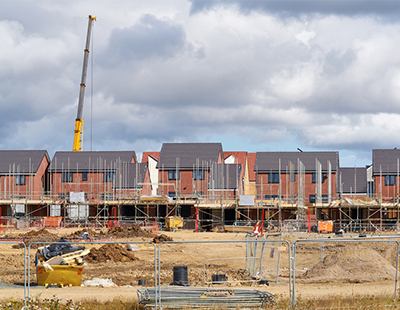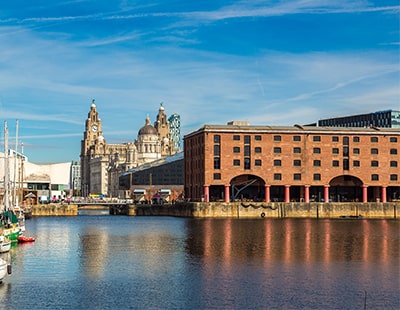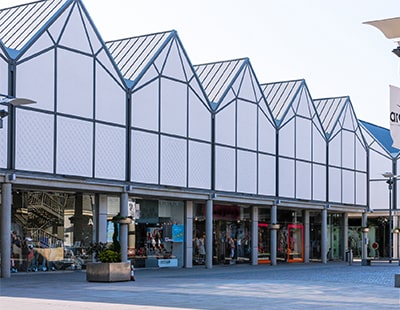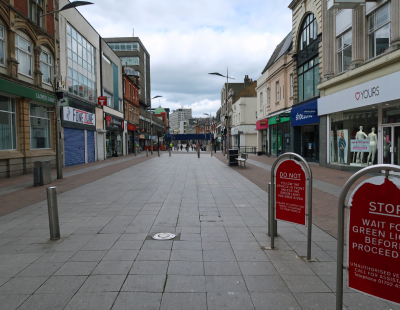In the world of residential conversions, such rules – and their effects on remote working culture – have dominated comment on the subject, with many figures noting that a retreat from office life is paving the way for more office-to-residential conversions.
At first glance, this newest chapter in the UK’s pandemic story might seem to refute or undo that kind of observation – and no doubt some offices might find themselves pulled back from the brink of becoming repurposed as workplace cultures respond to a lack of restrictions.
Of course, many people have pointed out that we’re unlikely to see a dramatic shift in working culture – hybrid working is here to stay, offices are less likely to be a focal feature of professional life, and such buildings are therefore going to continue to be prime candidates for conversion.
However, it’s worth taking a moment to think about the importance of converting buildings for residential use in a way that takes us beyond the ups and downs of pandemic rules.
From an investment perspective, assets that have a long-term appeal and desirability are always worth watching.
In that light, property investors interested in residential conversions should think, not just in terms of remote work, but in terms of the environmental and social benefits of repurposing properties – benefits that will only be felt more keenly than ever over the coming months, years, and decades.
A closer look at emissions
With insurance broker Aon reporting 2021 as the third-most costly year for weather disasters on record, environmental issues are becoming near-impossible to ignore – and, by extension, our responsibility to do something about these issues is an increasingly prevalent concern.
We can see this urge reflected in decisions made across various industries to cut carbon emissions, reach net-zero targets, and embrace sustainable practices.
In the world of property development, residential conversions represent one of the most meaningful ways to contribute towards this ongoing and long-term effort towards increased sustainability.
According to a 2020 report from Historic England, the government’s target of reaching carbon neutrality by 2050 can only be met if we commit to reusing, recycling, and responsibly adapting existing buildings – particularly when conversions include improvements to the building’s energy efficiency.
It’s easy to overlook some of the carbon-related advantages that come hand-in-hand with conversions because, in some respects, the carbon cost involved in demolishing and rebuilding a structure is hidden.
It goes without saying that demolition and rebuilding will come with its fair share of emissions, but the true cost lies in so-called ‘embodied carbon.’
University College London describes embodied carbon as all the CO2 emitted while producing materials for buildings, along with similar emissions caused by the construction of a given building, including the energy used for the extraction and transport of raw materials.
In essence, embodied carbon is a kind of emissions-based ‘debt’ that won’t be paid off if a building is demolished and rebuilt – meaning that conversions are now being looked on more and more favourably as a means of ensuring embodied carbon hasn’t gone to waste.
For investors interested in residential conversions, this favourable view of reusing buildings will only increase as we continue to work towards net-zero goals.
Housing shortages
Clearly, residential conversions aren’t just a flash in the pan response to COVID-related changes in work culture, but exercises in achieving long-term benefits for society as a whole.
These benefits are reflected, not only in conversions’ environmental impact, but in their implications for helping to resolve the ongoing housing crisis – a crisis which, much like sustainability, represents a stable and long-term concern that isn’t going to disappear any time soon.
Just recently, it’s been reported that Leicester is soon to declare a full housing crisis, with Leicester City Council unable to house over 6,000 people due to a lack of affordable homes.
This isn’t a local issue, but a national one, with the UK Government’s 2020/21 Housing Delivery Test finding that 93 local planning authorities – around a third of England’s local authorities, in other words – failed to deliver at least 95 per cent of the homes required to meet current housing needs.
Residential conversions are playing a big part in solving this problem, with Dr Ben Clifford of the Bartlett School of Planning pointing out that, “given the depth of the housing crisis in many cities, an uptick in office-to-residential conversions is a highly plausible medium-term outcome.”
With recent changes to permitted development rules meaning that conversions are both easier to commence and subject to national space and natural light standards, conversions can be understood as a means of providing quality additional housing at a time when such housing is sorely needed.
Good for society – and investors’ wallets
For property investors, residential conversions are growing in appeal – not only because they represent a way to limit carbon waste and a partial solution to the housing crisis, but because these issues are unlikely to disappear in the foreseeable future.
Recent changes to permitted development rules that make this kind of housing easier to undertake only highlight how lucrative investments in these kinds of properties can be – and the fact that they may have a hand in resolving some of the most urgent issues in our society is the cherry on top.
*Reece Mennie is the chief executive officer of HJ Collection










.png)









Join the conversation
Be the first to comment (please use the comment box below)
Please login to comment